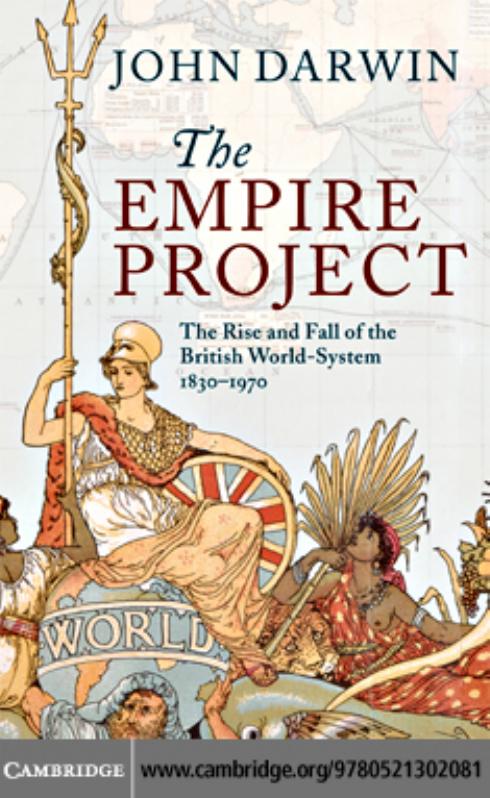THE EMPIRE PROJECT: The Rise and Fall of the British World-System, 1830–1970 by John Darwin

Author:John Darwin [Darwin, John]
Format: epub, pdf
Publisher: Cambridge
Published: 2010-12-30T23:28:48.715023+00:00
disaster. In December 1923, the Conservative vote held up well (at
38.1 per cent compared with 38.2 per cent in November 1922),
but Baldwin was swept away by the Free Trade opposition. But the
result was inconclusive. A minority Labour government took power
with Liberal support in January 1924. Neither circumstance, inclination, nor, perhaps, talent, could make Ramsay MacDonald a second
Gladstone.148 No great centre-left party emerged in a grand realignment of political forces. When MacDonald was pulled down by the petty
scandal of the ‘Campbell case’, and by public suspicion of his party’s
communist ties (the Zinoviev letter), it was Baldwinite Conservatism
that won the high ground electorally. In October 1924, it gained a decisive victory. With the long-awaited revival of European prosperity, and the return in Britain of a ‘social peace’,149 the domestic instability of the post-war years seemed a thing of the past.
Yet it had left its mark on the British role in their imperial system. Baldwin’s aim was a broad-based party that would annex the centre in British politics. He renounced protection and installed a free trade Chancellor (Winston Churchill). He embraced ‘economy’ in defence,
partly to fund the rising cost of welfare expenditure. He had learnt
from Chanak to fear confrontation abroad as a hostage to fortune. He
and other leading Conservatives accepted much of the ‘liberal’ outlook
on international affairs, as a rough approximation to informed opinion
417 / Making imperial peace, 1919–1926
and as a useful guide to the post-war world. As a result, the imperial attitudes of the post-war years seem curiously tepid. At another time, high unemployment, a vast new electorate and the nationalist revolts against
imperial rule might have prompted the embrace of a jingo populism.
Indeed, tariff reform at home, ‘splendid isolation’ abroad, opening up
the ‘undeveloped estates’, and a firm way with ‘agitators’, all had their
advocates in Conservative ranks. But the overwhelming need was to
bind the new political nation to an economic order (capitalism) it had
no reason to like. An attack on free trade (as Baldwin discovered) would
be deeply resented by the new constituency. Pre-war-style thinking on
imperial defence – as if Britain were still surrounded by rival world
empires – was (or seemed) obsolete at a time when the reconciliation of
Europe was the most immediate need and competing imperialisms at an
unusually low ebb. Coercive tactics against colonial (or semi-colonial)
dissidents in the Empire, Egypt, Iraq or China could not be ruled out.
But their likely cost, and the fear that they would lead to political
extremism and guerrilla war (the ‘Irish syndrome’ frequently invoked
after 1921) gave an added premium to emollient policies. To a much
greater extent than before 1914, the demands of empire on society at
home were to be monitored closely and reduced to the minimum. What
sort of empire that made in the age of depression the following chapter
will try to explain.
10
HOLDING THE CENTRE, 1927–1937
Until the mid-1920s, it had seemed as if the profound dislocation of economic and political life unleashed by the war would defeat all attempts to devise a new equilibrium. After 1925, the outlook improved. A
new economic order took shape in Europe, underwritten by the flow of
American investment.
Download
THE EMPIRE PROJECT: The Rise and Fall of the British World-System, 1830–1970 by John Darwin.pdf
This site does not store any files on its server. We only index and link to content provided by other sites. Please contact the content providers to delete copyright contents if any and email us, we'll remove relevant links or contents immediately.
| Africa | Americas |
| Arctic & Antarctica | Asia |
| Australia & Oceania | Europe |
| Middle East | Russia |
| United States | World |
| Ancient Civilizations | Military |
| Historical Study & Educational Resources |
Magic and Divination in Early Islam by Emilie Savage-Smith;(1533)
Papillon by Henry Charrière(1426)
Bohemians, Bootleggers, Flappers, and Swells: The Best of Early Vanity Fair by Bohemians Bootleggers Flappers & Swells- The Best of Early Vanity Fair (epub)(1394)
Ambition and Desire: The Dangerous Life of Josephine Bonaparte by Kate Williams(1384)
Twelve Caesars by Mary Beard(1313)
Operation Vengeance: The Astonishing Aerial Ambush That Changed World War II by Dan Hampton(1155)
What Really Happened: The Death of Hitler by Robert J. Hutchinson(1154)
London in the Twentieth Century by Jerry White(1145)
The Japanese by Christopher Harding(1130)
Time of the Magicians by Wolfram Eilenberger(1125)
Twilight of the Gods by Ian W. Toll(1117)
Lenin: A Biography by Robert Service(1074)
The Devil You Know by Charles M. Blow(1024)
A Social History of the Media by Peter Burke & Peter Burke(968)
Freemasons for Dummies by Hodapp Christopher;(964)
Napolean Hill Collection by Napoleon Hill(939)
Henry III by David Carpenter;(919)
The Rise and Triumph of the Modern Self by Unknown(913)
Richard III (The English Monarchs Series) by Charles Ross(906)
